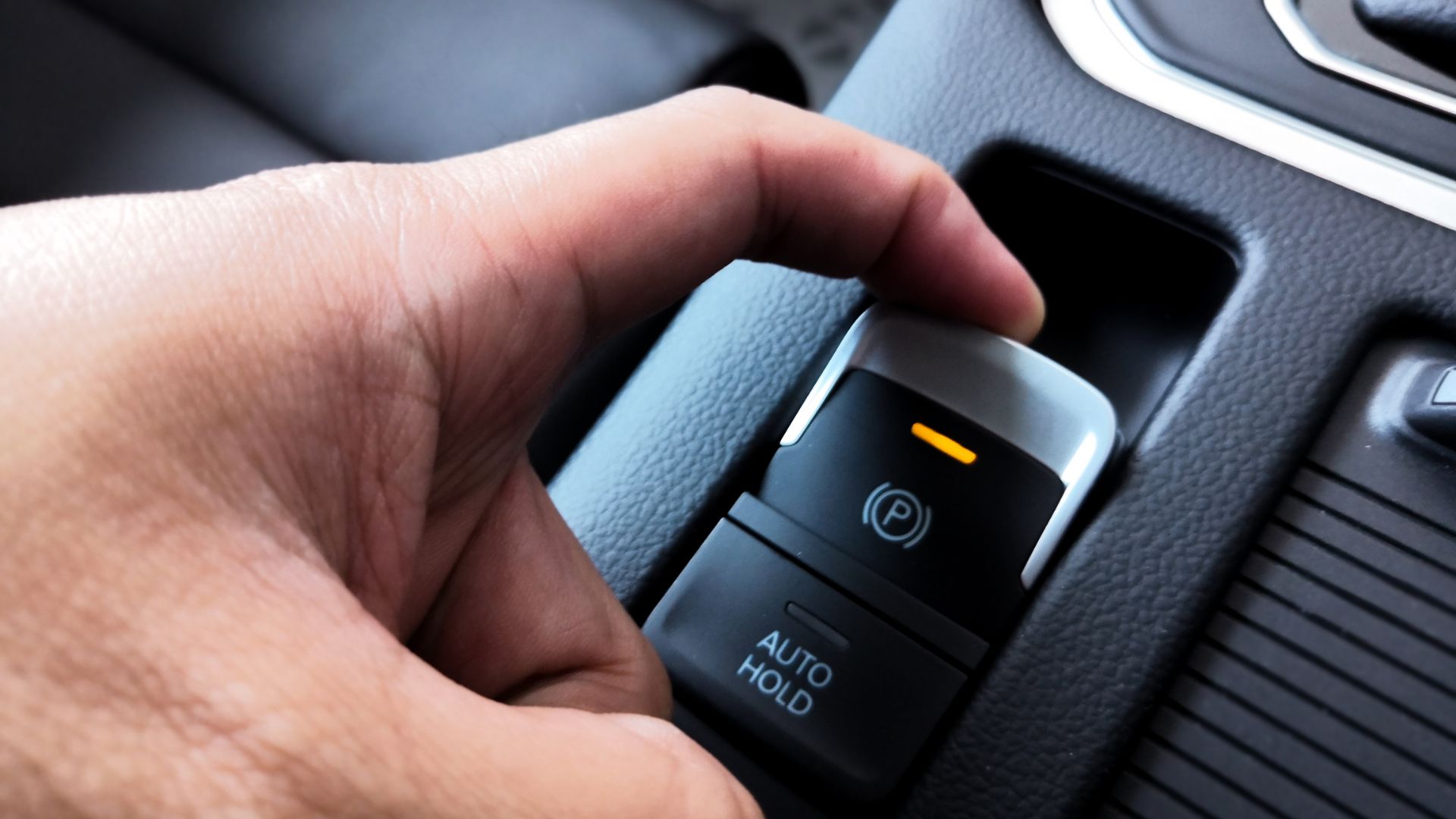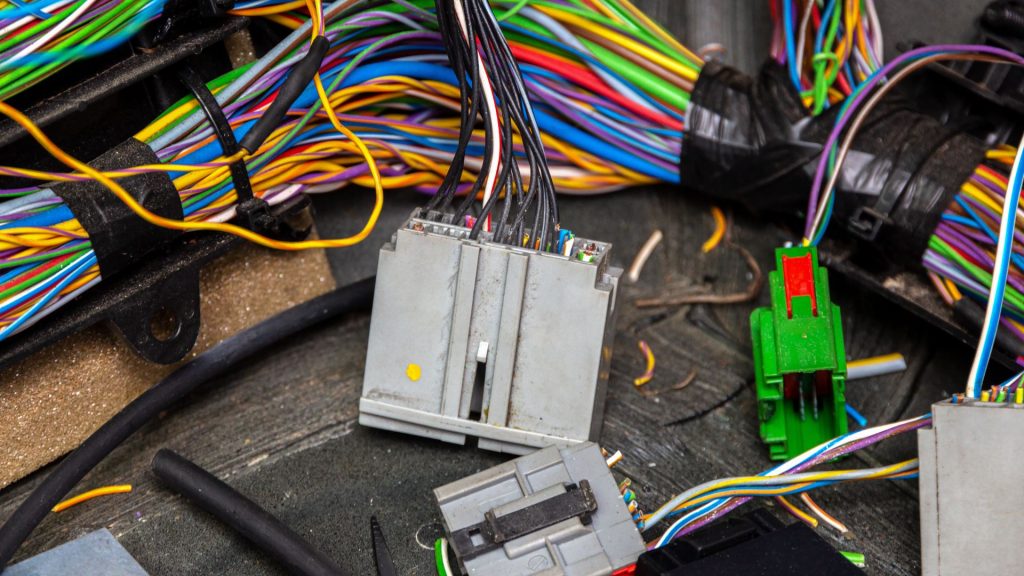Electric parking brake problems — causes and fixes
Troubleshoot common electric parking brake issues.

Modern technological advancements have allowed car engineers to replace the standard parking brake lever with an electric system. So, you can lock the wheels as you come to a stop by simply pulling the electric parking brake button.
It allows more space in the cabin and certainly looks a lot better. However, what happens if there comes an electric parking brake problem? That’s where things get interesting, and to prevent being stunned by it in case this problem happens to you, use the information from this guide to tackle the issue.
How does an electric parking brake work?

An electric parking brake replaced an old-school parking brake lever in most cars these days. However, it’s not a new invention, since the BMW 7 Series had it back in 2001. Of course, technology has advanced and now gives you a more sophisticated solution.
It also has a few drawbacks, since it prevents the ability to drift and somewhat lacks that sporty element every car guy is used to. However, electric parking brakes are a standard these days, and there are two types – full electric and hybrid brakes.
The hybrid parking brake works similarly to the old-school lever system in terms of cables pushing the brake pads against the discs. However, the cables are triggered by an electromotor, which is where the best of both worlds collide and results in emergency braking.
A full electric system is a bit more complex since there are no mechanical components and electric motors push the pads against the discs. As you pull the button with the “P” mark, electric motors engage and lock the wheels.
To relieve the pressure on the pads, it’s enough to gently push the button and the lock will release. Not only is this system more convenient, but it’s also more durable than the traditional hand brake.
Common electric parking brake problems

Along with all the benefits of a full electric parking brake. there are also a few problems that could occur in case of a malfunction. If a problem occurs, you’ll likely see a dashboard light glowing to signal the electric parking brake problem, or a board computer message will pop up.
These are some of the most frequent issues that come with an electric parking brake:
- Locked electric parking brake
- Bad wiring and electrical connections
- Damaged servo motor
- Battery or electronic control unit (ECU) voltage issues
Also, it’s worth mentioning that the electric parking brake will fail if your battery dies. It makes it difficult to tow the car as the brake won’t disengage without the electric charge.
The worst problem – locked electric parking brake
In case your electric parking brake gets locked, you won’t be able to drive your car. It’s the worst kind of trouble you can face with an electric system. Luckily, most cars have an emergency release you can manually trigger to have the brake pads stop pressuring the discs.
If your parking brake locks and you can’t move your vehicle, you can manually release it yourself so you can drive to a mechanic to inspect the system. You’ll first need to get under the vehicle and reach the rear brake calipers.
You can simply do it using a floor jack and get under your car to access the calipers. If there’s a manual release, you’ll notice bolts holding the parking brake system onto the caliper. Removing the bolts and electric parking brake motor carefully will let you access the brake caliper.
You need to do this carefully to prevent permanent damage to the electric motors. You’ll need a socket to turn the caliper piston and release the brake caliper. This way you can at least drive to a mechanic that will fix the system, mount the electric motors back, and use a scanner to aid the motors in relearning the air gap.
Problems with the wiring and electrical connections
The electrical parking brake system needs a proper electrical charge from the battery and sometimes the wiring and connections could get broken or loose. You also need to make sure that the electric motors are operable, as bad wiring can prevent them from doing their job.
Bad wiring or connections won’t cause a brake lock, but it might result in an inability to apply the equally frustrating parking brake.
Broken or damaged servo motor
The servo motor stands in place of a cable that physically locks the wheels in traditional parking brake systems. When you press the parking brake button, the servo motors push the brake pads against the discs and your car’s wheels lock.
While it’s not something that occurs so often, it’s sadly possible for the motors to malfunction, causing the brakes to become inoperable. The good thing is – it’s easy to remove and replace the servo motors. You can rely on the steps mentioned above regarding locked parking brake deactivation to take down the damaged motors.
Problems with the battery or ECU control
Finally, you might also be having an electric parking brake issue due to a discharged battery, or an ECU problem. Since the modern parking brake system needs an electric charge to work properly, you’ll need to check the battery voltage.
If it’s below 12 volts, chances are it can’t hold the charge and it might lead to numerous electrical components failing. This includes the electric parking brake. You should also apply the scanner tool to the OBD2 jack in your car to look for any problem codes in case the system isn’t working.
Finally, it’s also worth replacing the electric parking brake switch below the button in case electricity doesn’t seem to be the problem.
Our take
In this guide, our team presented you with all the common electric parking brake problems, so hopefully, that helps sort out the issue if it happens to you. It’s certainly the most annoying thing if the parking brake just gets locked and you can’t move your car.
However, it’s also crucial to maintain the electric connections and wiring and to check the servo motors every once in a while. This way, you won’t be surprised by the malfunctioning electric parking brake system which should last more than a regular parking brake if well preserved.
How much does it cost to fix an electronic parking brake?
It costs anywhere from $250 to $500 to fix an electronic parking brake depending on the exact malfunction and the manufacturer.
Can I drive with a parking brake malfunction?
You can’t drive with a parking brake malfunction if it leads to a locked parking brake. However, if you only notice the dashboard warning for a brake malfunction, it could also be due to electronic issues and you might be able to drive to the mechanic.
How do you turn the electric parking brake off?
You can turn the electric parking brake off manually by removing the bolts and turning the caliper piston to have the caliper pressure released.
How do you fix a parking brake malfunction?
You can fix a parking brake malfunction by getting under your car and taking off the bolts and servo motors that push the brake pads against the rotors.